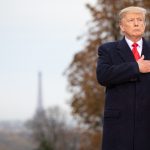Elon Musk, the billionaire whose face seems to be as ubiquitous as TikTok trends, has proposed a bold idea to tackle the ever-looming specter of government overspending. In a recent tête-à-tête with former President Donald Trump on X, Musk argued for the establishment of a commission dedicated to the Herculean task of slashing wasteful federal expenditures. Clearly, even the richest man on the planet isn’t a fan of watching taxpayer dollars disappear down the black hole of bureaucracy.
Musk didn’t mince words when discussing the root causes of inflation, saying it stems directly from the compulsion of the federal government to spend like there’s no tomorrow. He illustrated this with a simple yet profound analogy: government-written checks don’t bounce. In an economy that feels more like a runaway train, he relayed that excessive government spending increases the money supply, leading to the dreaded inflation we’ve all become too familiar with. Apparently, basic economics is a lesson that’s been lost on Washington’s elite.
👍Musk Tells Trump He'd Serve on a Commission to Address Nation's Government Spending Crisis via @WestJournalism https://t.co/YK0AIaRrdW
— V.Streifel (@streifel_v) August 14, 2024
With Trump nodding in agreement—no surprise there, as the two have a shared disdain for wasteful spending—Musk called for a “government efficiency commission” to weed out the nonsensical expenditures plaguing the national budget. This power duo is passionate about ensuring that hard-working Americans’ tax dollars are utilized wisely instead of funding the latest government pet projects that serve no purpose. Perhaps they think the government should take a page out of a household budget: live within your means or risk financial ruin.
Trump further highlighted the staggering reality that the government currently piles a trillion dollars in debt every hundred days. This astronomical figure raises eyebrows faster than a toddler spotting ice cream. In his typical fashion, Trump reminisced about his successful renegotiation of contracts—specifically the Boeing deal for Air Force One—where he managed to chop a whopping $1.6 billion off the price tag. Clearly, the former president has a knack for cutting out the excess, making him a natural ally for Musk’s ambitious efficiency measures.
The duo’s discussion didn’t stop there. They drew parallels to Argentina’s new president, Javier Milei, who, in a bold move, trimmed about 70,000 public employees in a desperate bid to salvage his country’s economy. While Musk pointed to Venezuela’s potential for prosperity undermined by poor governance, it becomes evident that both men worry about the U.S. becoming the next example of what not to do. They are seemingly calling on the government to stop burying its head in the sand and recognize that wasteful spending has dire consequences for American families.
On the other end of the spectrum, Kamala Harris recently voiced a different perspective on inflation, blaming greedy corporations rather than the insatiable spending and overregulation of the federal government. This suggestion is about as popular as a root canal. Harris’s remarks only reinforce the idea that many in Washington have completely lost touch with the fundamentals of sound financial management. Musk is attempting to shed some light on the real source of inflation, championing responsible fiscal policy—a message clearly needed in today’s economic climate where every dollar counts.
One thing is clear: while many government officials may prefer to kick the spending can down the road, Musk and Trump are eager to tackle it head-on. Their vision for a Government Efficiency Commission could signal a much-needed shift toward accountability, prudence, and, dare it be said, sanity in the halls of Washington. Perhaps the rich and powerful have taken notice that the American taxpayer isn’t an endless ATM, and they are ready to fight against the flood of financial mismanagement that threatens to erode the American Dream.




